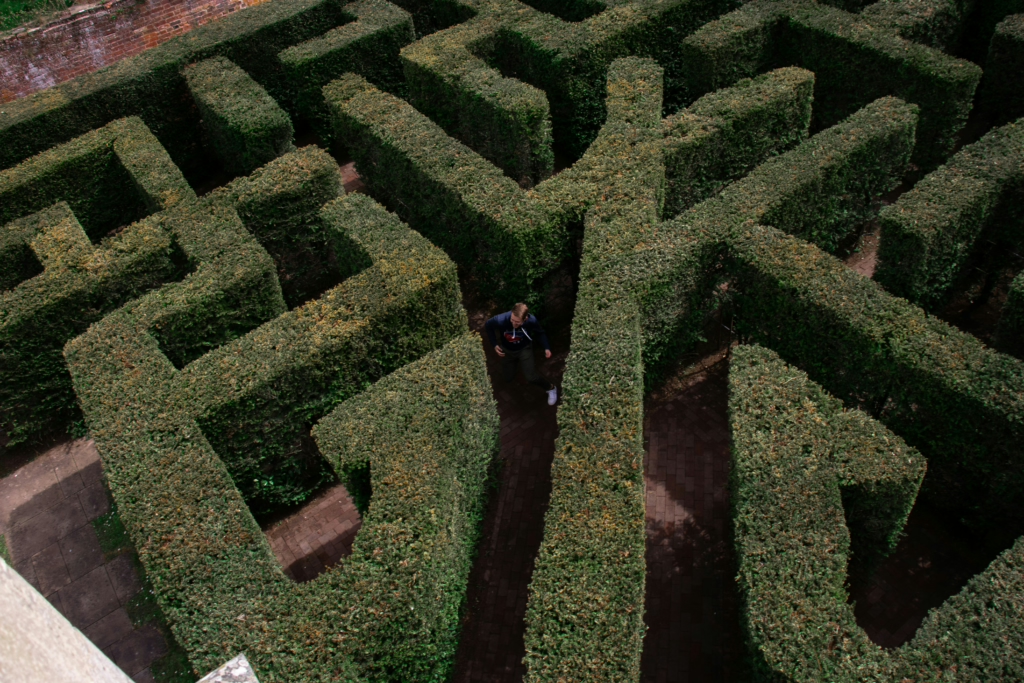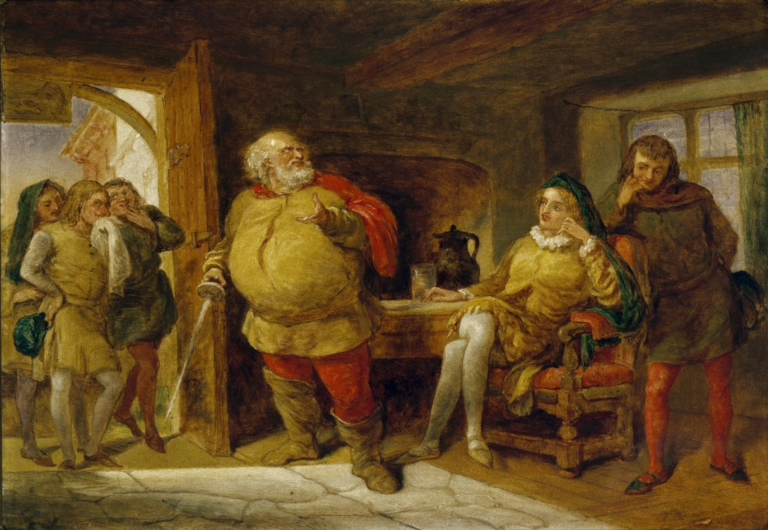Everyone is Doing The Best They Can…But Really, Though?

“We’re all doing the best we can.” – Brene Brown, Rising Strong, 118
“No one who has knowledge or thought of other actions as better than those he is doing, and as possible, will do as he proposes if he is free to do the better ones.” – Socrates, Plato’s Protagoras, 358b–c
Everyone is doing the best they can. It’s a bold statement, to say the least. Are we really supposed to believe that the bully who tormented us on the playground at recess was doing the best he could? Or the abusive ex? Or the arrogant boss? Or whoever it is in our lives right now who seems to want to make us miserable? That we’re all doing our best is an idea that’s hard for many to take seriously.
Yet, some do take it seriously. The most notable advocate of the idea of late is probably social worker-extraordinaire Brene Brown, quoted above. And, as we will see, the roots of this idea extend much further back – all the way to the ancient Greek philosopher Socrates.
So, should we take this idea seriously? What does it really mean about us if it is true? Let’s take a look!
How can it be possible that everyone is doing the best they can?
This may not be the only answer, nor even one Brown has in mind, but one plausible explanation for why we are all doing the best we can is:
- We all want to do the best we can; and
- If we are doing less than our best, it’s because we don’t know what the best thing to do is, or else we’d be doing it.
These assumptions may sound simple enough on the surface, but they have some astonishing implications. For one, taken together they rule out the idea that we could ever err because of a failure of willpower. After all, how I could I assert that I am doing my best if I know that I am doing something less-than-best? Gregory Vlastos calls this “doing the worse while knowing the better (Vlastos, 88).”
Let’s explore what it would look like if the two assumptions listed above are true. Our discussion will be rooted in the philosophy of Socrates, as drawn out by ancient philosophy scholars Terry Penner, Christopher Rowe, and Naomi Reshotko.
The ‘maze of life’
Socrates held that we all have an ever-present, general desire for what is best for us. When we act, we make the best determination we can as to what the best thing for us is in that moment. If that thing turns out to be less-than-best for us, then it also turns out that we didn’t actually want to do what we did (Penner & Rowe, 218).
If this seems like a strange idea, and you’re not alone — I thought the same thing the first time I sat with it. But bear with me. Here’s an example that may be helpful for grasping the idea:
Imagine that you are trying to find your way out of a giant hedge maze. You come to a fork where you have to choose to go in one direction or the other. So, you pick the one that seems best and go that way. Soon, you find yourself at a dead end – you’ve gone the wrong way. You think to yourself, “I didn’t want to go this way after all.”
And according to Socrates, that’s right – you never did want to go that way, even if it seemed best to do so at the time, because what you really wanted was to get out of the maze, and choosing to go the way you did wasn’t helpful for that goal.
Now, let’s generalize this example.
You (and all of us) are wandering through the ‘maze of life.’ You want what is best for yourself, but you don’t know what that is, because you can’t know ahead of time what the full repercussions of any given choice will be (his includes choices about what career to pursue, which people to befriend, whether or not to start a family, which hobbies to take up, even what to make for dinner, etc.). So, at the moment of choice, you can never know whether or not what you are doing is truly best for yourself. But because you truly want what is best for yourself, if it turns out that various choices you’ve made aren’t good for you, then it turns out that you didn’t actually want to do those things after all.
And, according to Socrates, this is true for all of us.
So, our childhood bullies, exes, etc., didn’t actually want to hurt us, if it turns out that hurting us wasn’t in their best interest (and it’s very hard to imagine that it was, given that research shows that bullying, for example, is correlated with all sorts of adverse life outcomes). They were doing the best they could — that is, they were acting according to what seemed best to them at the moment of choice. And if we have hurt others (as we all have done, in varying degrees, at various times), then we didn’t want to do those hurtful things, either. We were doing the best we could. If we knew better, we’d have done better.
This gives us an explanation for how our lack of complete knowledge — in the present, of the future, etc. — can cause us to make sub-optimal choices despite our desire for what is best. But don’t our emotions and impulses factor into the equation?
Putting out ‘internal fires’

Here’s another way to illustrate the idea that everyone is doing the best they can:
Say that I believe that eating a piece of chocolate cake before bed is bad for me because sugar keeps me up at night. Then, I eat a piece of chocolate cake before bed. And then, I regret having eaten that piece of cake as I lay down in bed with a sugar high.
This, I hope, is a quintessential example of what we normally take to be a failure of willpower, with willpower being, roughly, the ability of our rational minds to exert control over our irrational urges. But wouldn’t this example confirm the common-sense notion of failure of willpower and therefore rule out the possibility that everyone is doing their best? Not necessarily. It depends on what we believe and when.
Let’s break down this example into three distinct moments in time:
- At 9:00pm: I believe that eating a piece of chocolate cake before bed is bad for me.
- At 9:30pm: I eat a piece of chocolate cake.
- At 10:00pm: I lay in bed with a sugar high, regretting having eaten that piece of chocolate cake.
For the theory that everyone is doing their best to hold, the only thing that matters here is what I believed to be best at 9:30pm, when I ate the chocolate cake. In other words, I could have believed that eating the cake was bad for me at 9:00pm and at 10:00pm, but if in the interim that belief gave way to a short-lived belief that eating the cake was actually the best thing for me, then our theory has not been disproved.
But is belief really that fluid? Sure it is.
We commonly hear about ‘putting out fires’ in a metaphorical sense. To spend one’s day ‘putting out fires’ is to spend the day reacting or responding to things that come up unexpectedly and require immediate attention, rather than doing whatever it is we had intended to do before the unexpected event occurred. In other words, something(s) comes along that changes our belief about how we should spend our time. Say, for example, that I had intended to write reports for work this afternoon, but then I got a call that my son was sick at school. And on the way home from school, my car got a flat tire and I had to take care of that. I might say that while I intended to write reports, I instead spent the afternoon ‘putting out fires.’
When we speak of ‘putting out fires’ like this we tend to think in terms of responding to external events, but it can also make sense to think of putting out fires in relation to internal events.
Perhaps we could think of an ‘internal fire’ (or an ‘internal smoldering’) as an emotion or urge that comes on and makes us uncomfortable enough that putting it out — engaging in some form of self-soothing — becomes our top priority, regardless of whatever we had thought was the best thing to do before the ‘fire’ ignited.
With this notion of ‘internal fire’ in hand, let’s return to the chocolate cake example:
At 9:00pm, I believe it is best not to eat any sugary foods because I will be going to bed soon and sugar keeps me awake. At 9:15pm, I finally get the kids to bed and realized just how exhausted I am. I think about how nice it would be to flop onto the couch and watch a video to unwind, but then I remember: I need to write some reports for work. I cringe at the thought of doing that unpleasant task, especially because I am already so tired. But I decide to power through. I sit down with the first report and…stare at it for a few minutes, my eyes glazing over. It looks like it’s written in Greek.
An ‘internal fire’ ignites as I start to smolder inside – I feel dismayed and just want to rebel against this whole situation. By 9:30pm, I tell myself, “You know what, let me just eat that piece of chocolate cake – it’ll give me the boost of energy I need to get these reports done, and that is the most important thing right now.” So, I eat the chocolate cake. And then I get the reports done. When I finally lay down in bed at 10:00pm, I notice that I am wired from that chocolate cake and think, “I shouldn’t have eaten the cake.”
And that’s an example (based on Reshotko, 81ff) of how an ‘internal fire’ – a build-up of distressing emotion or an urge – can cause a temporary lapse in belief about what is best.
This sort of process doesn’t even need to involve any distressing emotion, however. The allure of pleasant feelings or emotions alone is enough to cause a lapse in belief. The process in that case would look much the same. So, internal experiences can have this effect on our beliefs in a variety of ways. Socrates would contend that these sorts of processes as described above can account for every instance, for every person, of what might look like a failure of willpower, but in reality is a lapse in belief about what is best.
Conclusion
Above, we’ve explored two arguments in support of the belief that everyone is doing the best they can. But, you may be thinking…what use is any of this? As we’ve seen, it’s not like, if we come to believe this, we’ll magically make better choices. We’d still have to contend with the ‘maze of life’ and the ‘internal fires’ that cause our beliefs to go sideways …or up in smoke. So, why does it matter?
Brene Brown relays that when she asked her husband whether he believes this idea, he responded, “I don’t know. I really don’t. All I know is that my life is better when I assume that people are doing their best. It keeps me out of judgment and lets me focus on what is, and not what should or could be (Brown, 113).” That, I think, is well put.
On top of that, my intention with this article is to argue that this idea is not mere pie-in-the-sky optimism, but that there are good philosophical reasons for taking it seriously. As for its therapeutic value, I’ll conclude with the following from Christopher Rowe:
[F]or if it is human to reason, then — according to the implications [of the belief that everyone is doing the best they can] — we shall be human even when we go wrong; or as one might put it, we shall be human all the way down. The [alternative] view, by contrast […] makes us only partly human; the rest will be beastly — lion-like — or downright monstrous.
Christopher Rowe, “Reading Socrates in Plato’s Dialogues,” p39
The belief that everyone is doing the best they can is a belief that humanizes us. And that is a precious thing.
References
Brown, B. (2015). Rising Strong: How the Ability to Rest Transforms the Way We Live, Love, Parent, and Lead. Random House.
Penner, T. & Rowe, C. (2005). Plato’s Lysis. Cambridge University Press.
Plato (1967). Plato in Twelve Volumes, W.R.M. Lamb, Trans). Cambridge, MA, Harvard University Press; London, William Heinemann Ltd. This work is licensed under a Creative Commons Attribution-ShareAlike 3.0 United States License.
Reshotko, N. (2006). Socratic Virtue: Making the Best of Neither-Good-nor-Bad. Cambridge University Press.
Rowe, C. (2009). Reading Socrates in Plato’s Dialogues (Stephen MacKenna Lecture, Dublin, January 2009). Hermathena, 186, 25–41. http://www.jstor.org/stable/23041698
Saunders, T. (1987). Plato: Early Socratic Dialogues. Penguine Classics.
Vlastos, G. (1991). Socrates: Ironist and Moral Philosopher. Cambridge University Press.
Photos:
Hedge maze by Tobias Rademacher on Unsplash
Firefighters by Ulises Escobar on Unsplash






